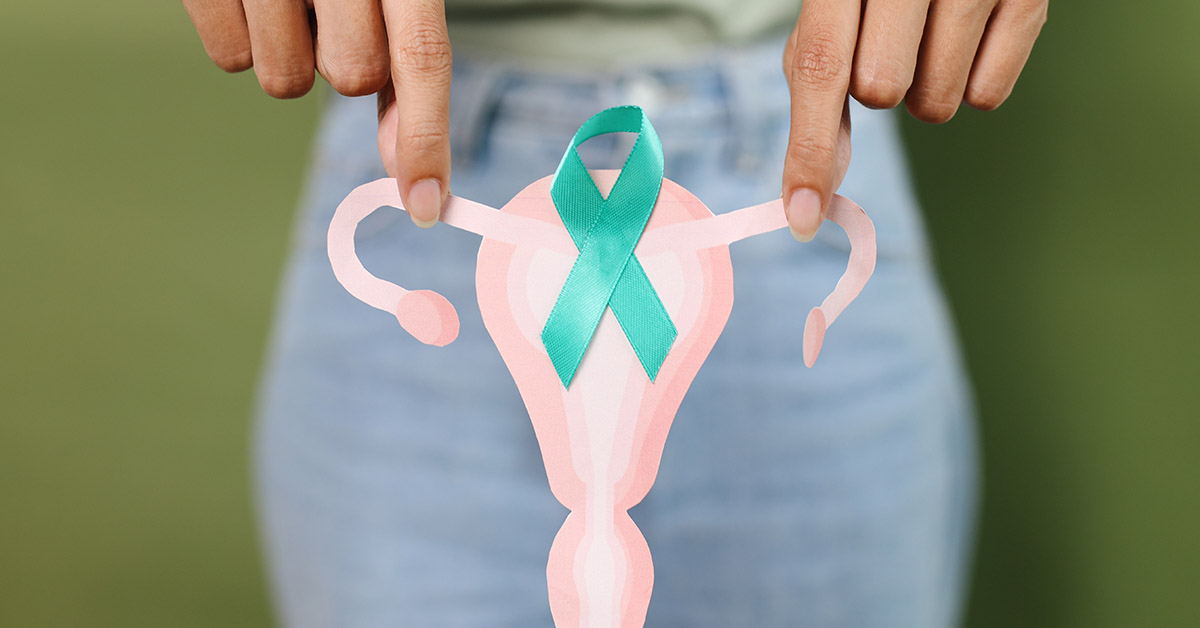Uterine is one of the most common forms of cancer, especially for women post-menopause. There are two types: the rare uterine sarcoma (that develops in the muscle walls of the uterus), and endometrial cancer (that develops in the uterine lining). When caught early, before the cancer spreads to other organs, the cure is often a simple hysterectomy. Unfortunately, there’s no way to screen for uterine cancer, and testing is not usually done for people without symptoms. However, endometrial cancer is often diagnosed early because people notice the warning signs and speak to their OBGYN. Here are the symptoms to look out for:
Irregular Vaginal Bleeding

The most common sign of uterine cancer, even in the early stages, is vaginal bleeding. This happens when the cancer develops on the lining of the uterus, making it thicken, and slough off. This creates unusual bleeding patterns, such as between periods or after menopause. It may look like spotting, a dark discharge, or an unusual flow during a period. This symptom, even on its own, warrants a visit to a doctor or OBGYN.
Read More: Experimental Cancer Treatment Destroys Cancer Cells Without Using Any Drugs
Pelvic Pain

Pelvic pain may come as the cancer enlarges or spreads into the abdomen or pelvis. Sometimes, the body recognizes the tumor as something foreign and cramps up to try to get rid of it. The pain can be constant, come in waves, or show up during vaginal penetration if there’s pressure put on the uterus. Some patients feel a sharp pain, while others feel a minor discomfort. Pain may also occur in the lower back and legs in advanced stages.
Gastrointestinal Issues

Digestive symptoms tend to occur in the later stages of uterine cancer when it goes into the abdomen and pelvis. There, it can cut off parts of the bowel and disrupt the movement of stool in the intestines. This can result in constipation, diarrhea, pain in the abdomen, and feeling full after eating less than usual.
Bloating

Bloating can happen when the cancer spreads to the abdomen and creates a fluid build-up called ascites. This may make the belly feel hard and swollen. Sometimes, the tumor becomes large enough to cause swelling in that area. Bloating is also a sign of ovarian cancer.
Read More: Doctors Kept Dismissing My Back Pain Until I Was Finally Diagnosed With Terminal Cancer
Increased Urge To Pee

Those who have been pregnant before may be familiar with needing to pee more frequently as the fetus presses against the bladder. Similarly, when the uterine cancer mass becomes large enough to flatten the bladder, there’s an increased urge to urinate even when there’s not much to expel.
Unintentional Weight Loss

Advanced uterine cancer can lead to unintended weight loss when the mass spreads to the abdomen. This makes the tumor press against the stomach and makes it feel full even after small amounts of food. Plus, weight loss can occur when advanced cancer causes inflammation that disrupts the metabolism and decreases appetite.
No Symptoms of Uterine Cancer

Although most people experience signs of uterine cancer, some don’t. Others might feel unwell overall with no specific complaint. After all, the uterus easily expands to fit a fetus without significantly impacting other parts of the body, so it can also accommodate a tumor.
If you experience irregular vaginal bleeding or other symptoms of uterine cancer, speak to a medical care professional for a physical exam. They will prescribe a biopsy and/or ultrasound to look at the inside of the uterus if necessary. They may ask for your medical history to determine your level of risk for uterine cancer. Such factors include obesity, polycystic ovarian syndrome (PCOS), taking estrogen without taking progesterone, diabetes, age 50+, ovarian diseases, no previous pregnancies, and early menstruation.
Read More: 4 Early Symptoms Of Ovarian Cancer That Every Woman Needs To Know
Sources
- “What Are the Symptoms of Advanced Uterine Cancer?” Healthline. Jennifer Larson. July 27, 2023
- “Uterine Cancer (Endometrial Cancer).” Cleveland Clinic. March 21, 2023
- “7 Symptoms of Uterine Cancer You Shouldn’t Ignore.” Health. Jenny McCoy. August 23, 2023

